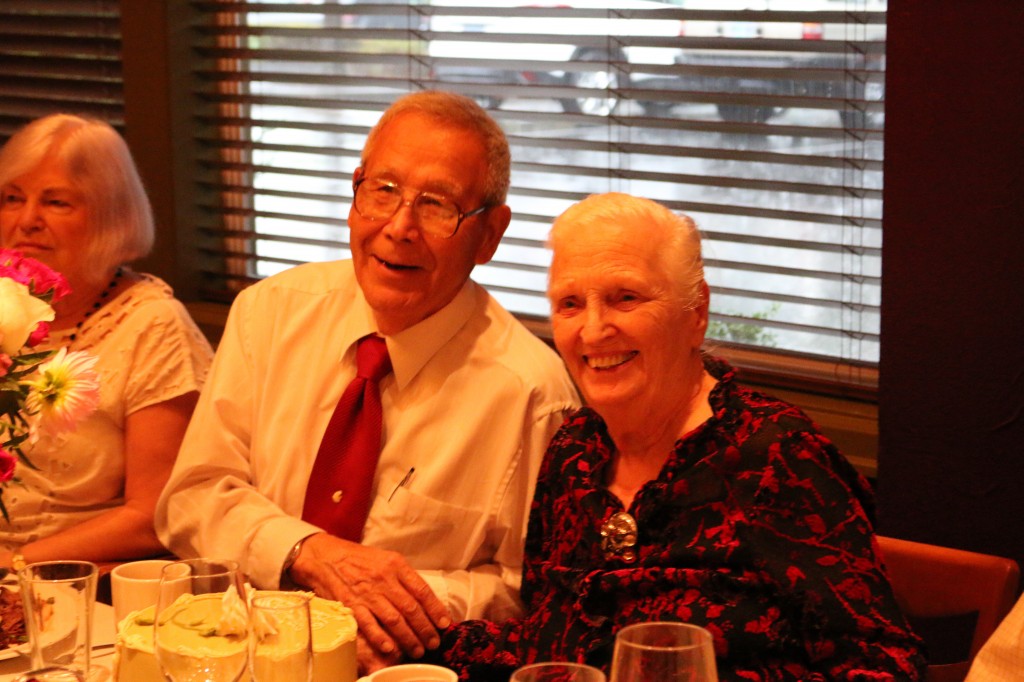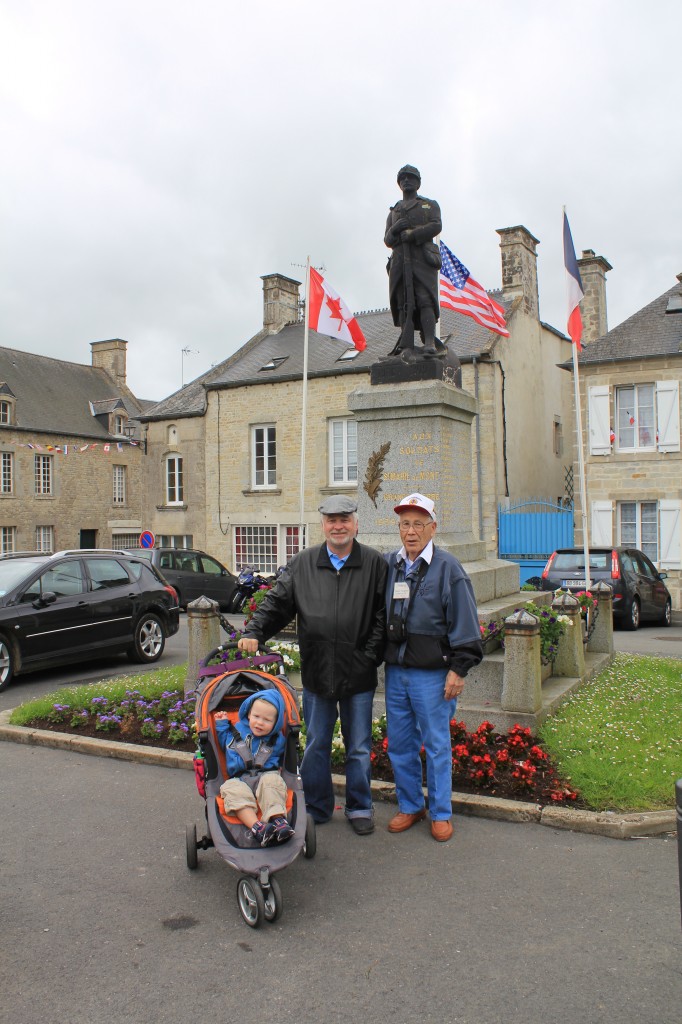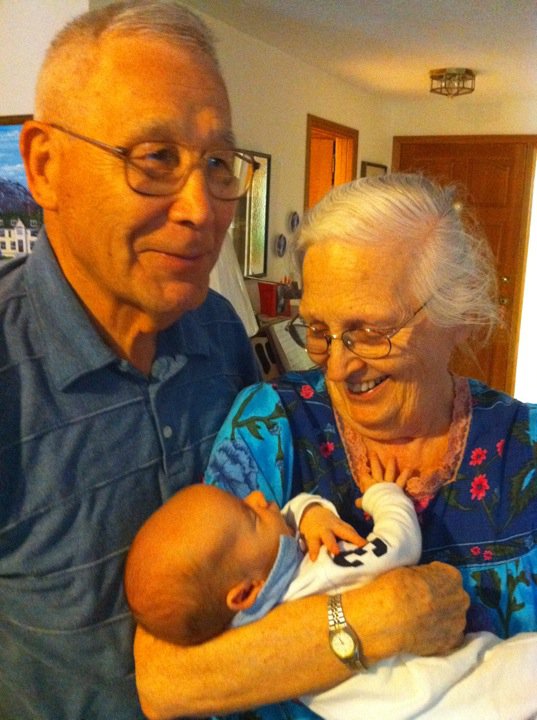Phone calls at 1 a.m. are never good when you are a surgeon. They are even worse when you look at the phone and realize it’s from your elderly parents.
“Terry, this is your dad. The ambulance just came for your mom.”
Dad went on to tell me that mom had become confused, disoriented, and said she felt horrible and had to go to the hospital. Dad was driving there after he talked to me. Just 12 hours before I had stepped off the plane, after visiting them in Oregon.
Mom had been telling us she felt “out of it” for the previous two months. She’s had epilepsy for years and in the last two months she had more seizures. Her medicine had changed so we attributed it to that. It was disturbing when my dad said that there were times she was confused and not oriented to place and time. Calling her daily on the phone I didn’t get the idea that she was suffering from short term memory loss- but she complained that she was confused. Finally my wife suggested we fly to Oregon from Phoenix, to see them, just to put my mind at ease.
My parents still live in their own home, and my father still drives a car at age 89. My mom developed macular degeneration a few years ago and can no longer read, but has adjusted by listening to books. For a while she insisted she could drive because she could read the numbers on the dial of the car, but thankfully she gave up her driver’s license before we had to have “the talk” with her. Not before scaring a few family members with her driving — the left lane for older people is their preferred lane because there is no one in front of them.

My parents enjoying the celebration of their 65th anniversary.
My father, the World War II veteran decided 2 years ago that he wanted to go to the 68th reunion of D-Day. I asked him if he had an active passport, and he didn’t know so I didn’t think about it, until two days later he called and confirmed he was on a tour going to Europe. I asked if mom was going with him, he said no – so my wife and I decided we were going to go. It was a great trip, one we shall always be grateful for- nothing like having a father who is still spontaneous and liked to travel.

At age 87 dad decided he wanted to celebrate D-day in Normandy, where he had been a soldier 66 years before. We decided to take the trip with him
Two years before he called me to tell me he was having surgery the following day for a hernia. It was difficult for me to imagine my father not telling his son, a surgeon, because I would have directed him to a surgeon I know in the Portland area. Serendipity ruled and he was seeing the surgeon I would have sent him too. I decided to fly up after the surgery. It was two days after the operation and dad asked me if he could take some Tylenol for discomfort – I was shocked that he had not had more pain medicine, but that was the only medication he took. He developed the hernia, he said, when he was making a new fence, “I think it happened when I was moving one of the twenty pound bags of sand – there were about 100 of them.” Other than the heart attack when he was 55 years old that forced him into early retirement, and a few stents and a defibrillator later, my father continues to defy convention eating what he likes (usually sweets and ice cream) and walking the dog daily.
It’s nice having parents that have been self-sufficient for all these years. They do well at taking care of each other, and in September will celebrate their 66th Anniversary. The transition as they age to where they may need more help has become apparent, but it is easy to avoid the conversation and just think life will go on.
Several hours later my father called me, this time at 7 am, to tell me that mom’s blood levels of sodium were low (normal is 140, people get sick at 125, and mom was at 116). That, I thought, explained the increased seizures over the years, the occasional confusion, and her newer complaints about constipation. Being a son who is a doctor means I get to hear about my mother’s bowels.
Then I thought back over the last two months: she had seen a neurologist and I doubt he ordered a blood level. She had talked to her family doctor, who may have assumed at 86 mom was doing well. She had been to the ER last week for an enema and somehow I don’t think they checked her blood levels. Everyone thinking she is 86, it is ok to be batty, and relax.
Surgeons are not good at relaxing. Now my mom had something happening that could explain her symptoms, but what caused the low sodium level?
As a doctor you’re used to giving advice to friends and family members. As with most – you give them the advice and they decide what they want to do with it, and if it fits in with their view they take it, if it doesn’t they ignore it. In this case I worried that telling my mom to drink more because of the hot weather might have contributed to her low sodium levels.
She improved in the hospital with routine care. But now my concerns focused on what would happen when she left – would they have diagnosed the cause of this before she left? Would she follow up with her family practice doctor? Would they get follow up labs and would my parents get them?

The first time my parents met their first and only grandson, who is now four years old.
The lessons learned were these:
Parents who are independent are great, but they need a health advocate. Many studies show people live long who avoid doctors, but they still need someone to help them navigate the complex world of today’s healthcare.
People who age get the same problems as younger people, and need the same work-up as you would give a 30 year old.
People who age are more likely to ignore a doctor’s advice, because they don’t wish to bother getting the test, don’t want to wait a couple of hours in a doctors office, or don’t want to pay a co-pay. Follow up with senior citizens is critical – their age means they tolerate medical mistakes less.
Getting a medical power of attorney is critical- you want the doctors who care for your parents to be able to talk to you. This means whichever doctors they go to, because you want to be able to do their follow up.
They reach the age where they need help – and even far away there is still room to find someone to look in on them, clean their house, make some meals, and provide them with some company.
It is easy for them to mix up medications, not take medications, or not fill a prescription. Having someone check on them and providing ways to see if they are following up is important, and checking to make certain the medicine they received from the pharmacy matches what the doctor told them they should be getting. Plus learning what those prescriptions side-effects are, and being ready to call their doctors to ask them to re-check them.
Family doctors are nice, but having a doctor who specializes in the treatment of older people, called gerontologists, is better.
At some point they may not be independent, and it is good to begin the discussion about that transition.
Mom did fine, but we are now working to follow up the above system. While at it I installed a Drop-Cam in their house so I can occasionally look in on them from afar.
